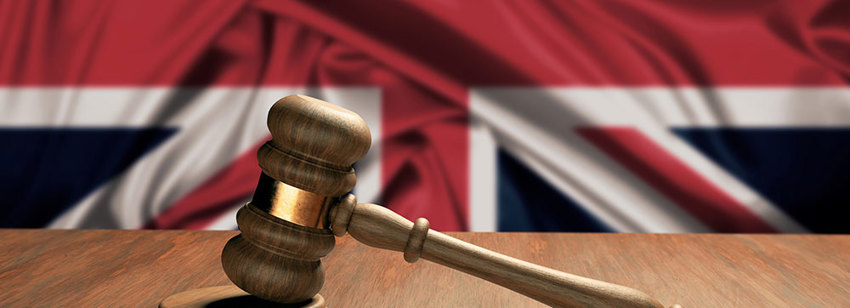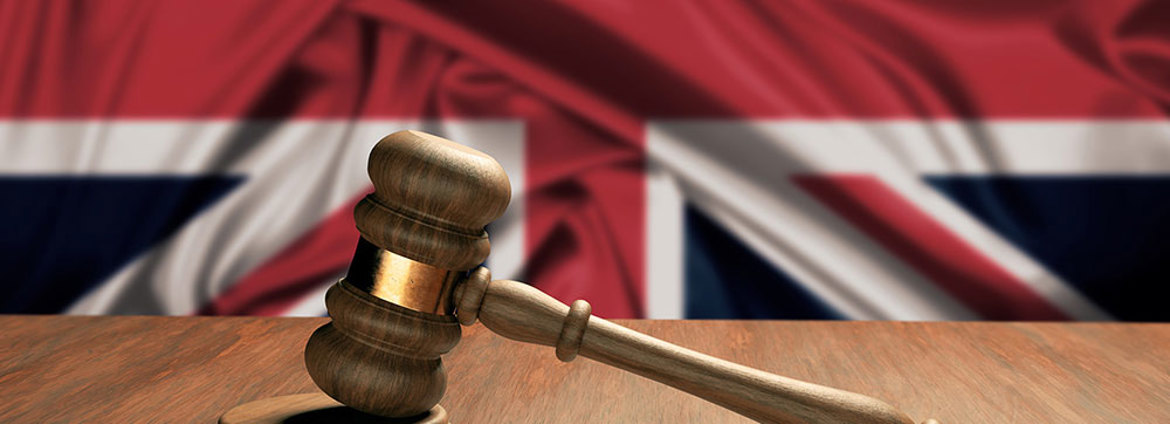The United Kingdom Supreme Court has just released an important insolvency judgment in BTI 2014 LLC v Sequana SA [2022] UKSC 25 (Sequana), which concerns when and the extent to which directors of a company must consider the interests of creditors. The Court held that directors must consider the interests of creditors to differing degrees depending on the state of the company's financial affairs, with creditors' interests becoming paramount when formal insolvency procedures are inevitable. The decision is likely to be influential in New Zealand and highly relevant in the current economic climate.
What you need to know
You should know these three things:
- New Zealand law currently requires company directors to consider the interests of creditors if the company is insolvent, or near-insolvent, or of doubtful solvency, or if a contemplated payment or other course of action would jeopardise its solvency.1 However, the exact limits of that 'duty' and when it should arise has not been thoroughly considered by the Supreme Court in New Zealand.2
- Sequana is likely to influence the development of New Zealand law. It has held, in summary, that:
- if company insolvent or bordering insolvency, but insolvency procedures not inevitable - balance interests: When a company is insolvent, or bordering on insolvency, but formal insolvency procedures are not inevitable, the directors should consider the interests of creditors, balancing them against the interests of shareholders when they may conflict. The greater the company’s financial difficulties, the more the directors should prioritise the interests of creditors.
- if insolvency procedures inevitable - creditors' interests paramount: If formal insolvency procedures are inevitable, creditors' interests become paramount as the shareholders cease having any valuable interest in the company.
- Directors' potential liability for ignoring creditors is not going anywhere. The decision signals that the interests of creditors are here to stay in a directors' duties context, although Sequana is slightly more "director friendly" than the current position as it is assumed to be under New Zealand law.
What happened in Sequana?
Sequana concerned the payment of a dividend €135 million by a company named AWA to its parent company (Sequana) in May 2009, which extinguished most of a debt owing by Sequana to AWA. At the time AWA paid the dividend, it was balance sheet and cashflow solvent. The payment of the dividend also complied with the statutory requirements under the Companies Act 2006 (UK) and with the common law rules about maintenance of capital.
However, AWA had long-term pollution related contingent liabilities of an uncertain amount, together with uncertainty as to the value of one class of its assets (namely, an insurance portfolio). Those two uncertainties gave rise to a real risk, although not a probability, that AWA might become insolvent at an uncertain but not imminent date in the future.
AWA went into insolvent administration almost ten years after the payment of the dividend, in October 2018.
The appellant, BTI 2014 LLC, purchased AWA's claims against its directors, and pursued AWA's directors for the amount of the dividend, on the basis that their decision to distribute the dividend was in breach of the alleged duty to act in accordance with the interests of creditors when the company is insolvent, or, as BTI 2014 LLC alleged, when there is a real risk of insolvency.
What did the Court say?
The Court unanimously found that the directors were not under any duty to consider the interests of AWA's creditors at the time of the dividend payment. This was because AWA was neither actually nor imminently insolvent, nor was insolvency even a probability. It was not enough that there was a real and not remote risk of insolvency.
The Court also unanimously found that a director, as part of his or her duty to act in good faith in the interests of the company, must also consider the interests of creditors in certain circumstances (as summarised in the 'What you need to know' section above). The primary rationale for affirming that duty was that creditors have the main economic stake in liquidation, which necessitated consideration of their interests at an earlier stage.
When is the duty engaged?
The Court did not need to determine when the duty was engaged, because, on whatever view, AWA would not have met any of the relevant tests.
However, the majority held that the duty would be engaged when directors either knew, or ought to have known, that the company was insolvent or bordering on insolvency, or that formal insolvency procedures are probable. The minority did not decide whether it was essential that the directors knew or ought to have known of those matters.
What are the implications for New Zealand?
- Insolvent trading? Recent appellate decisions have indicated that directors in New Zealand must cease trading or risk personal liability so soon as a company's solvency becomes "unsalvageable."3 In practice, the recent appellate authorities leave very little room for directors of insolvent companies to trade on without risk of personal liability.4 However, in contrast to those decisions, Sequana implies that insolvent trading (even once formal insolvency procedures are inevitable) may not be impermissible on its own, provided that the directors give paramount consideration to the interests of creditors. That would seem to be at odds with the New Zealand Supreme Court in Debut Homes, which held that the director was under a duty to cease trading once it was clear that the deficit would never recover, even though trading for a further limited period would reduce the amount of the deficit. However, it may not affect the forthcoming Supreme Court judgment in the Yan v Mainzeal Property and Construction (in liq) appeal, since that case (like many insolvent trading cases) turned heavily on the insolvent trading provisions under ss 135 and 136 of the Companies Act 1993 (rather than any allegation that the directors failed to consider the interests of creditors).
- More director friendly? Sequana suggests that even when a company is insolvent, provided it is not inevitable that the company will fall into formal insolvency procedures, directors must consider and balance creditors' interests against shareholders' interests. The weight to be given to each group's interests will depend on what the directors reasonably regard as the degree of likelihood that a proposed course of action will lead the company away from threatened insolvency or back out of actual insolvency. That, in turn, may depend on a "realistic appreciation" of who has the "most skin in the game." That test may influence the development of New Zealand law, for several reasons.
- first, Lord Briggs (who led the majority in Sequana) rejected the premise on which the New Zealand courts have required directors to consider the interests of creditors (in Nicholson v Permakraft (NZ) Ltd). In Permakraft, Cooke J saw incorporation as conferring a privilege, which imposed a duty on directors (arising from business ethics) to consider the interests of creditors, who were affected by that privilege. Lord Briggs instead saw the rationale as arising from creditors' "economic stake" in the liquidation process. The shift in rationale signals a potentially narrower scope for the legal duty – away from the minimisation of harm towards a balancing of interests.
- second, in Debut Homes, the Supreme Court did not need to address these issues, given that the company was unsalvageable at the time of the relevant decision-making. In addition, in Debut Homes, the Court also aligned the "good faith and best interests of the company" duty under s 131 of the Companies Act 1993 more closely with the English law, which means Sequana may be seen as more applicable in the New Zealand context.
- Must the directors know? One helpful aspect of the judgment is that it suggests that director liability for failing to consider the interests of creditors would only arise once a director knows or ought to know that the company is insolvent or bordering on insolvency, or that formal insolvency procedures are probable. That is a question which remains open in New Zealand, following Debut Homes. In Debut Homes, the director actually knew and was advised the company was incapable of salvage, so it was not necessary for the Court to determine to what extent (if any) a director must know of a company's insolvency. Sequana suggests, consistent with the facts of Debut Homes, that a director is only under a duty to consider the interests of creditors when the director knew or ought to have known that the company was insolvent. If Debut Homes is read in that light, it narrows the scope of potential director liability under s 131 of the Companies Act 1993. However, Debut Homes leaves open the possibility of broader liability based on an objective assessment of a company's "salvageability," which would best be narrowed using the Sequana formulation.
Contact us
Please contact Luke Sizer or Scott Barker if you have any questions about this article. Luke and Scott are members of the firm's insolvency and restructuring teams, regularly acting on a range of contentious and non-contentious work. Buddle Findlay has one of New Zealand's pre-eminent insolvency and restructuring teams, consistently rated in tier 1 or band 1 on league tables including Chambers and Partners, IFLR 1000, and Legal 500.
1 Nicholson v Permakraft (NZ) Ltd [1985] 1 NZLR 242 (CA); Madsen-Ries (as liquidators of Debut Homes Ltd (in liq)) v Cooper [2020] NZSC 100, [2021] 1 NZLR 43.
2 Madsen-Ries (as liquidators of Debut Homes Ltd (in liq)) v Cooper [2020] NZSC 100, [2021] 1 NZLR 43 at [116]-[119] dealing briefly with the requirement that directors consider the interests of creditors as a whole when a company is not salvageable.
3 Madsen-Ries (as liquidators of Debut Homes Ltd (in liq)) v Cooper [2020] NZSC 100, [2021] 1 NZLR 43 at [174]-[178].
4 Luke Sizer "The new debt approach" [2022] NZLJ 33 at 34.




